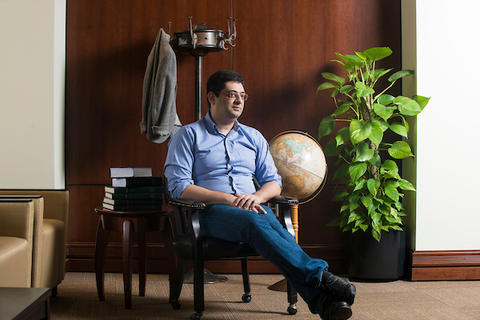
Faculty in 5: Aseem Kaul
Friday, March 4, 2016
Q: What is your current area of research? What business challenges are you helping to solve?
A: My research focuses primarily on the question of firm boundaries: how does (and should) a firm decide what businesses or markets to be in? So, for instance, what are the benefits and costs to a firm of diversifying into new businesses? When should a firm choose to invest in foreign operations, and when might it be better for it to outsource?
One issue I'm particularly interested in is corporate restructuring, i.e. changes in a firm's corporate portfolio or structure. I think for a lot of companies restructuring is something you do only when your performance starts falling. There's an 'if it ain't broke why fix it' mentality. But a recurring theme of my research is that waiting till things start to go wrong is usually a bad idea. Firms (and their managers) may be better off restructuring proactively: going after new opportunities from positions of strength by selling of businesses with low growth potential while they're still profitable, and using the resources and momentum from their current success to get a jump start in new business and technological areas. If you wait to restructure until you absolutely have to, you're likely too weak to do it well.
Q: What current business issues or stories in the news are you following and why?
A: Two stories I've been following are Google's restructuring into Alphabet, and GE's process of gradually refocusing on their core areas. I think both stories speak to a question that lies at the very heart of managing multibusiness corporations: can a firm add value across a diverse and largely unconnected set of businesses? Research suggests that the answer to that question is no--spreading yourself across a wide range of businesses means that at best you'll just replicate the market, and at worst you'll spread yourself too thin and end up destroying value for your shareholders. So GE's success has always stood out as something of an anomaly, and it's interesting to see that start to resolve itself. It's even more interesting to see what Google is trying to do with Alphabet, and whether they can really become a platform for next-generation technologies, or just end up as another holding company, adding little value to the businesses they invest in.
Q: What is your favorite class to teach?
A: I would have to go with MGMT 6085, which is an elective on corporate strategy I teach to the part-time MBA students. What makes the class really fun for me is that it's squarely focused on the topics I research. So I get to see all these dry, somewhat abstract ideas from the scholarly articles we write connect with the specific experiences of my students in their workplaces. And I find that I learn as much from the students as they (hopefully!) learn from me. Every year I come away from the class with a new set of questions or ideas to take back to my research. It's really just a perfect symbiosis between research and teaching.
Q: If you weren’t a business school professor, what would you be doing?
A: Honestly, that's hard to imagine. But I do write poetry and short fiction in my spare hours, so if I weren't a business school professor I guess I might take a shot at doing that full time.
Q: What is the best book you’ve read in the past year?
A: I'm going to be greedy and pick two books here--Evan Osnos' 'Age of Ambition' and Rana Dasgupta's 'Capital: The Eruption of Delhi' --but only because they form such a natural pair. Both books provide a close, behind-the-scenes look at the social and political changes that accompany explosive growth in an emerging economy (Osnos in China, Dasgupta in India); both books are filled with fascinating insights, small and large; and both books raise as many questions as they answer. Individually, each book is a compelling read; together they make for a truly incredible comparative study.
